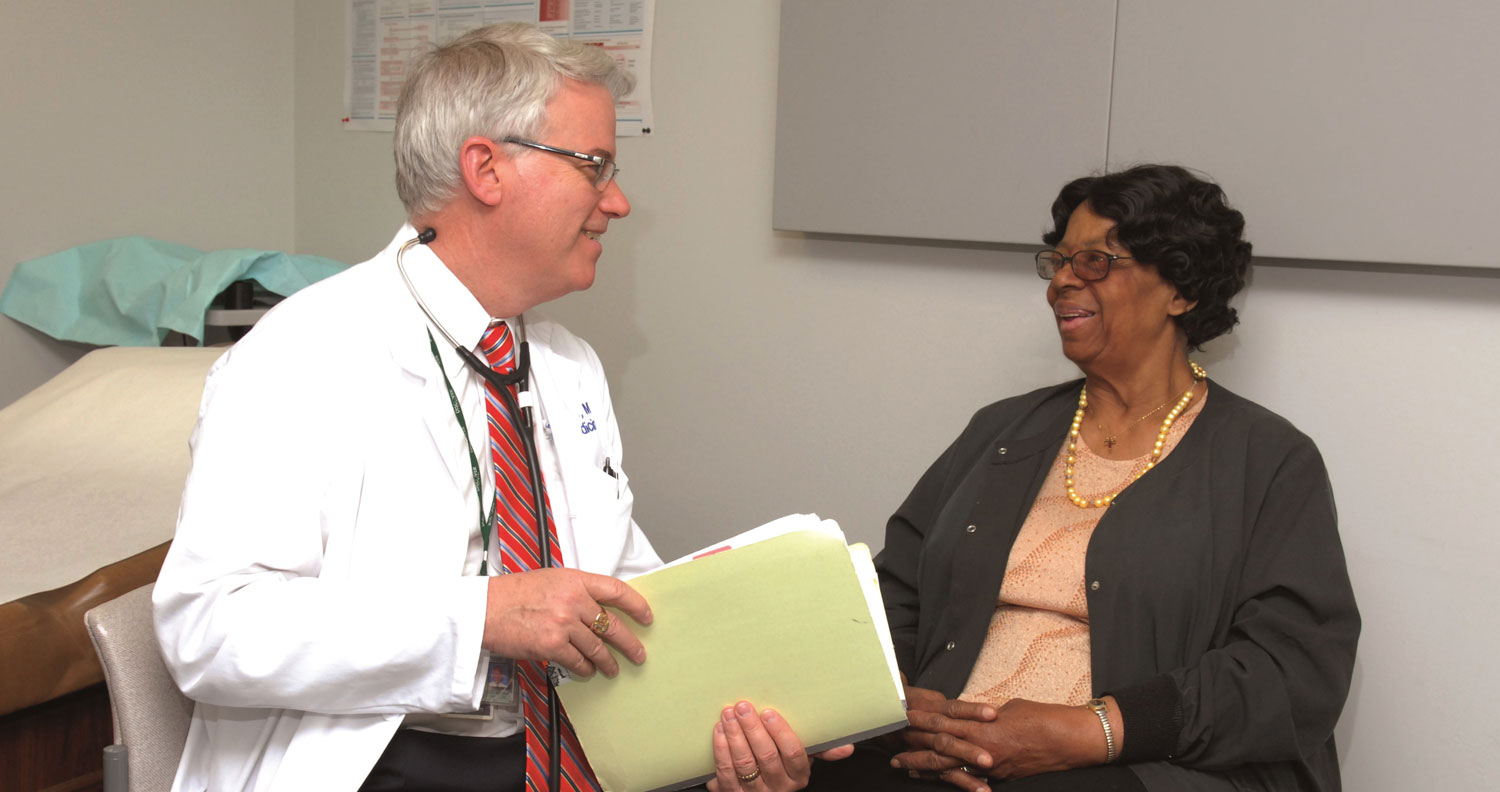Library Receives NIH Grant
October 12, 2016
The $15,000 grant from the National Library of Medicine and the National Institutes
of Health will fund exploration of health literacy among the PCOM patient population.
As the U.S. healthcare industry continues to shift its focus towards maintaining wellness
and preventing disease, health literacy and patient education are becoming more important
aspects of care. Yet a 2010 report by the U.S. Department of Health and Human Services’
Office of Disease Prevention and Health Promotion found groups such as those over
65, minority populations, and those with incomes at or below poverty level are more
likely to experience limited health literacy.
Many in these groups comprise the 22,000 patients served annually by PCOM’s community-based healthcare centers in Philadelphia and rural Sullivan County, Pennsylvania.
Now, thanks to a $15,000 grant from the National Library of Medicine and the National
Institutes of Health, the PCOM Library is working with the healthcare centers to coordinate a patient-education needs assessment,
to determine how education among the healthcare centers’ patient population factors
into their understanding of their personal health issues, self-management of their
health and ultimately, compliance with the care plan laid out by their PCOM physician.
“Studies have shown that a patient's level of health literacy can affect compliance
and adherence to their healthcare provider's treatment plan, and access to credible
health/patient education information is something that libraries provide,” explained
the study’s principal investigator (PI), P.J. Grier, MPA, MLIS, associate director,
library and educational information systems. “Ultimately, we’d like for the Library
to provide a sustained patient-education delivery platform, in concert with physicians
and mental health providers in the clinics.”
The Library will conduct the needs assessment with the help of Susan LaValley, MA,
MLS, MS, a medical librarian with extensive experience working with clinical populations.
Ms. LaValley, the project’s co-PI, will collect data about patients’ education through
observation, interviews, surveys and physician and psychologist focus groups.
“Part of meeting the needs of our patients is providing them with relevant information
about their health and any conditions they need to manage,” said Harry J. Morris DO ’78, MPH, professor and chair, family medicine. “Something as simple as giving them a
pamphlet to take with them can help underscore what their doctor is telling them,
but it has to be well-understood by the patient in order to be effective.”
The goal of the project is to provide the Library with information that can serve
as the groundwork for future research that targets specific aspects of PCOM’s patient
population, such as health conditions, areas of residence, or insurance status.
PCOM’s healthcare centers, which also serve as clinical training sites for PCOM students,
are recognized as Level 3 Patient-Centered Medical Homes by the National Committee
for Quality Assurance (NCQA). The NCQA Patient-Centered Medical Home standards emphasize
the use of systematic, patient-centered, coordinated care that supports access, communication
and patient involvement
To learn more about our healthcare centers, visit Patient Services at PCOM.
This project is supported by the National Library of Medicine (NLM), National Institutes
of Health (NIH) under cooperative agreement number UG4LM012342 with the University
of Pittsburgh, Health Sciences Library System. The content is solely the responsibility
of the authors and does not necessarily represent the official views of the National
Institutes of Health.
You May Also Like:
About Philadelphia College of Osteopathic Medicine
Established in 1899, Philadelphia College of Osteopathic Medicine (PCOM) has trained
thousands of highly competent, caring physicians, health practitioners and behavioral
scientists who practice a “whole person” approach to care—treating people, not just
symptoms. PCOM, a private, not-for-profit accredited institution of higher education,
operates three campuses (PCOM, PCOM Georgia and PCOM South Georgia) and offers doctoral degrees in clinical psychology, educational psychology, osteopathic
medicine, pharmacy, physical therapy, and school psychology. The college also offers
graduate degrees in applied behavior analysis, applied positive psychology, biomedical
sciences, forensic medicine, medical laboratory science, mental health counseling,
physician assistant studies, and school psychology. PCOM students learn the importance
of health promotion, research, education and service to the community. Through its
community-based Healthcare Centers, PCOM provides care to medically underserved populations.
For more information, visit pcom.edu or call 215-871-6100.
Contact Us
For general media inquiries, please contact the Office of Marketing and Communications
at 215-871-6300 or communications@pcom.edu. Visit our media relations page to view contact information for public relations personnel.
Connect with PCOM


